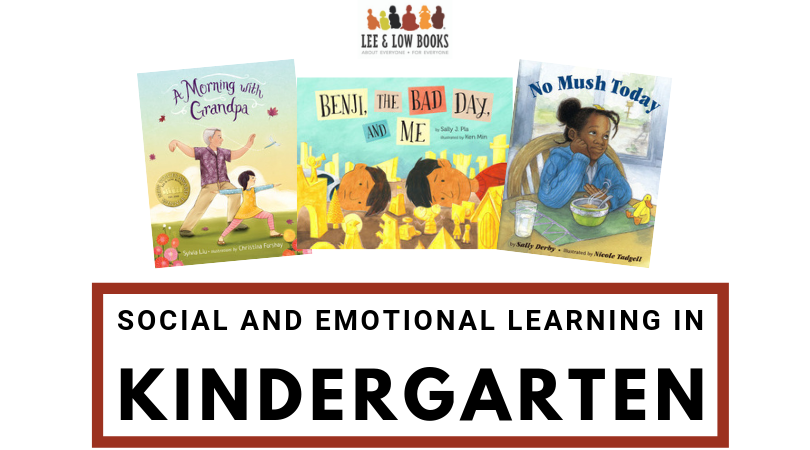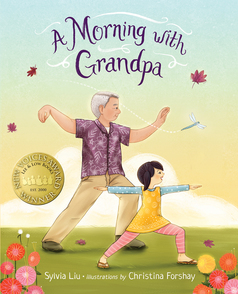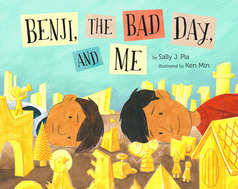
Social Emotional Learning (SEL) is a hot topic, but it’s certainly not new. Skills like empathy, cultivating and maintaining positive relationships, recognizing and managing emotions, problem solving, approaching tasks with grit and perseverance, and taking on others’ perspectives have always, and will always, be crucial to kids’ success. Research shared by CASEL reports that SEL programs lead to “immediate improvements in mental health, social skills, and academic achievement,” and “up to 18 years later, students exposed to SEL in school continue to do better than their peers on a number of indicators: positive social behaviors and attitudes, skills such as empathy and teamwork, and academics.” SEL is certainly worthy of time and attention from those who support children’s development.
Books are valuable tools for guiding conversations about SEL topics. Children can examine and learn from characters’ actions and experiences and relate them to their own. Of course, book selection is key. When kids see both themselves and others in diverse books, it says, “You matter. Reflect on your experiences.” and “Others matter. Listen and learn.” Therein lies the heart of SEL.
As students grow and change, so do their social emotional learning needs. Linking diverse books to SEL goals and challenges across different ages is a powerful way to support students as they navigate each developmental stage. This blog series explores how diverse books can be used to support social emotional learning at different grade levels.
Strategies for Managing Big Feelings: How Diverse Books Can Support Social and Emotional Learning in Kindergarten
Starting kindergarten is an exciting time in the lives of many students and families, but the transition to formal schooling often brings new social and emotional challenges.
Being a “big” five or six-year-old comes with big feelings — as it should! —and managing excitement, delight, frustration, anger, and sadness in a classroom setting can require new skills. A kindergarten day is full of transitions, which include class meetings, independent work recess, lunch, and more. Going from energetic times of day to more restrained ones increases demands for students’ emotional flexibility and self-control. Kindergarten classes usually have higher student to teacher ratios than preschool classrooms, requiring students to manage their emotions across the entire day with less adult support.
The best kindergarten teachers accept these challenges as opportunities— they are real and important developmental tasks for this age group. These educators are intentional about teaching children concrete strategies to use to manage their emotions in healthy, appropriate ways. These teachers often invite children to get to know characters in diverse books who face similar challenges to open class conversations about managing emotions and make strategies more memorable. For example:
 Kindergarten students will relate to Mei Mei’s physical energy and enthusiasm in A Morning with Grandpa. When Gong Gong tries to teach Mei Mei tai chi, it’s hard to move slowly and carefully! By practicing tai chi and yoga along with the book characters, children can learn about deep breathing and mindful movement. These strategies have many applications for managing emotions and energy levels in the classroom. Plus, Mei Mei shows how being in control of your physical and emotional self doesn’t have to be boring! She still has plenty of age-appropriate fun with her Grandpa, just as we’d hope kindergarteners would do while learning and playing at school.
Kindergarten students will relate to Mei Mei’s physical energy and enthusiasm in A Morning with Grandpa. When Gong Gong tries to teach Mei Mei tai chi, it’s hard to move slowly and carefully! By practicing tai chi and yoga along with the book characters, children can learn about deep breathing and mindful movement. These strategies have many applications for managing emotions and energy levels in the classroom. Plus, Mei Mei shows how being in control of your physical and emotional self doesn’t have to be boring! She still has plenty of age-appropriate fun with her Grandpa, just as we’d hope kindergarteners would do while learning and playing at school.
While Nonie’s frustrations in No Mush Today happen at home and not school, kindergarteners will easily make connections to feeling angry about being asked to do things they don’t want to do. Labeling Nonie’s feelings and discussing her actions can help teachers introduce strategies for managing difficult emotions in the classroom. Nonie seeks comfort from her grandmother when she’s angry, and asks her grandmother to listen to her. She also gives herself time to feel her feelings: she walks, attends church, plays; over the course of the day, her anger dissipates. Try creating classroom lists about “Who Can Listen When I’m Upset at School?” or “What Can I Do While I’m Feeling Sad or Mad at School?”
Benji, The Bad Day, and Me is a wonderful resource to open conversations about responding to others’ emotional  experiences with acceptance and support, as well as the potential of sensory-based techniques. Sammy has a horrible day at school. It’s made worse by the fact that he thinks no one in his family even notices his anger and sadness, even though they pay lots of attention to the emotional needs of his younger brother, Benji, who has autism. Then Benji sweetly offers to share his “burrito blanket”, and Sammy’s day turns around. This story can help frame discussions about both the universality of human emotions and the different ways individuals find useful to manage them. It’s also a chance to normalize sensory supports that might be in place for specific children in your class. After reading, have students respond to questions like, “Do you like to be alone or with someone when you’re upset?” “What do you wish someone else would say or do when you’re upset?” and “Where do you like to go when you’re upset?” Some students may even appreciate the chance to try hiding in a small, cozy space, being wrapped up like a burrito, or using other sensory-based strategies and talk about whether or not they find them helpful.
experiences with acceptance and support, as well as the potential of sensory-based techniques. Sammy has a horrible day at school. It’s made worse by the fact that he thinks no one in his family even notices his anger and sadness, even though they pay lots of attention to the emotional needs of his younger brother, Benji, who has autism. Then Benji sweetly offers to share his “burrito blanket”, and Sammy’s day turns around. This story can help frame discussions about both the universality of human emotions and the different ways individuals find useful to manage them. It’s also a chance to normalize sensory supports that might be in place for specific children in your class. After reading, have students respond to questions like, “Do you like to be alone or with someone when you’re upset?” “What do you wish someone else would say or do when you’re upset?” and “Where do you like to go when you’re upset?” Some students may even appreciate the chance to try hiding in a small, cozy space, being wrapped up like a burrito, or using other sensory-based strategies and talk about whether or not they find them helpful.
Also in this series:
Using Diverse Books to Support Social and Emotional Learning in Preschool
Books offer so many opportunities for social emotional learning in kindergarten, and at all ages and stages. For more ideas about supporting social emotional learning using diverse books, check out Lee and Low’s Social Emotional Learning Diverse Book List for Grades PreK-8. Also don’t miss the recording of the webinar Using Diverse Books to Support Social and Emotional Learning with Katie Potter, Lee & Low’s literacy specialist.
 About the Author: Lindsay Barrett is a former elementary teacher and literacy nonprofit director. She currently works as a literacy consultant and stays busy as a parent of four children under six. Find out more about her work at lindsay-barrett.com.
About the Author: Lindsay Barrett is a former elementary teacher and literacy nonprofit director. She currently works as a literacy consultant and stays busy as a parent of four children under six. Find out more about her work at lindsay-barrett.com.








